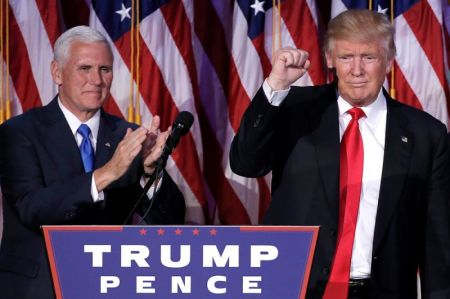Trump's Victory Driven by GOP's Pro-Life, Religious Liberty Platform, Study Says

Nearly 60 percent of Donald Trump voters say the Republican Party platform's "strong positions on unborn human life and religious liberty" were a key reason behind their decision to back the president-elect, according to a post-election survey released Friday.
The study, conducted by WPA Research and commissioned by Family Research Council, shows that 59 percent of Trump voters were impacted by the Republican Party's pro-life and pro-religious liberty stand.
The GOP platform "was the bridge between Donald Trump and Christian conservatives," FRC President Tony Perkins said.
"It was the party platform that brokered the deal between Trump and Christian conservatives – a deal that was sealed in the final debate when Trump vividly described a partial-birth abortion and pledged to appoint pro-life justices," Perkins said in a statement. "The Republican Party platform played a key role in bringing Christian conservatives and Trump together."
The survey draws attention to the fact that Trump's victory was settled by less than 300,000 votes nationwide.
The study also shows that two-thirds of surveyed registered voters agreed that "government should leave people free to follow their beliefs about marriage between one man and one woman as they live their daily lives at work and in the way they run their businesses."
Trump's support was not solely concentrated among white voters, as some might think, as nearly one-in-three Hispanic voters voted for Trump, and a significant number of African American voters formed a critical piece of his coalition, the study said, adding that more than half of African American voters agree with the statement that marriage should be defined only as a union between one man and one woman.
When asked if they believe the government should leave people free to follow their beliefs about marriage between one man and one woman in their daily lives at work and in how they run their businesses, there was a broad consensus across racial lines that the government should not involve itself - with 66 percent of surveyed voters agreeing.
"It is clear that, despite some elements of the media and other interest groups trying to declare victory in the 'culture war,' social issues remain an area of deep division," the survey concluded. "Furthermore, conservative positions on social issues mattered strongly to critical elements of the Trump coalition, stretching across racial lines. These issues, far from settled, will continue to resonate, as extreme positions from the left clearly turn away significant elements of critical voter coalitions."





















